A hybrid breed made by breeding Rhode Island Red roosters with White Rock hens, the Golden Comet chicken is known for its plentiful brown eggs. They are also known as Red Stars, Golden Buff, or Cinnamon Queen. It doesn’t hurt that they have striking golden plumage as well. They’re a popular type of chicken to raise for commercial egg laying since they produce a lot of eggs. They are also large and meaty enough to be raised for meat as well. But they make great additions to a backyard flock thanks to their gentle personalities. Overall, Golden Comets are a chicken worth checking out!
Golden Comet Chicken Appearance

Red stars are not broody, making them perfect for mass egg production.
©Tony Campbell/Shutterstock.com
These chickens begin as adorable, fluffy chicks that are either pale yellow (males) or light tan (females) when they hatch. As they grow, they mature into mid-size birds that can be up to 8 pounds (roosters) or 7 pounds (hens). These birds have yellow skin and reddish-brown feathers. Most have white coloring interspersed in there as well, especially on their head and neck. They have a single comb on the top of their heads. Golden Comets are named for their dark golden feathers. They also go by the name Cinnamon Queen, Red Star, or Golden Buff. All of these reflect the striking coloring of this breed.
Are Golden Comet Chickens Friendly?
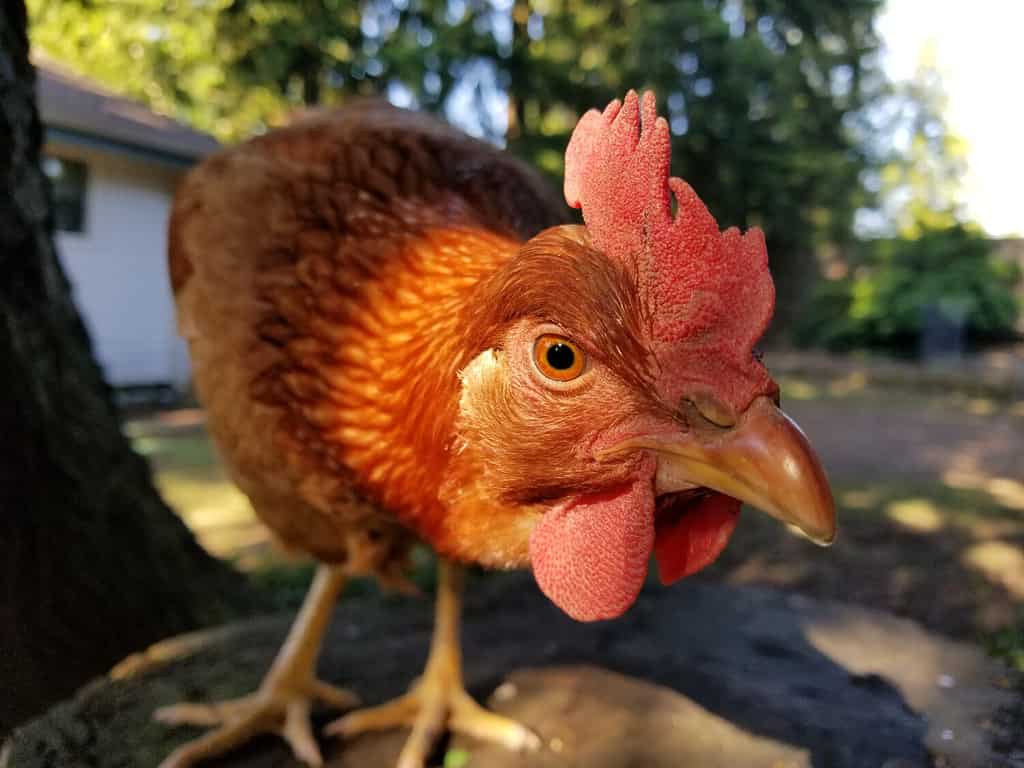
Golden Comets make excellent chickens to keep as pets because they are calm and gentle.
©Closed Canvas/Shutterstock.com
These chickens are very friendly and known for their calm demeanor. This makes them excellent birds to keep if you have children helping to tend the flock. Usually, they don’t peck and can get comfortable with being handled and held. Even the roosters are not aggressive, although they can get defensive if they feel the need. These chickens won’t peck at you or other birds in the flock.
Golden Comets do well when they have plenty of room to forage and explore. They aren’t particularly high maintenance but do have quite a bit of energy. When given the right amount of space, they keep themselves busy and occupied without a lot of required attention. They don’t get aggressive with other birds and do best when kept with other non-aggressive chickens. Some breeds are known to be more aggressive than others. These are not the best companions for Golden Comets.
Keeping Backyard Chickens
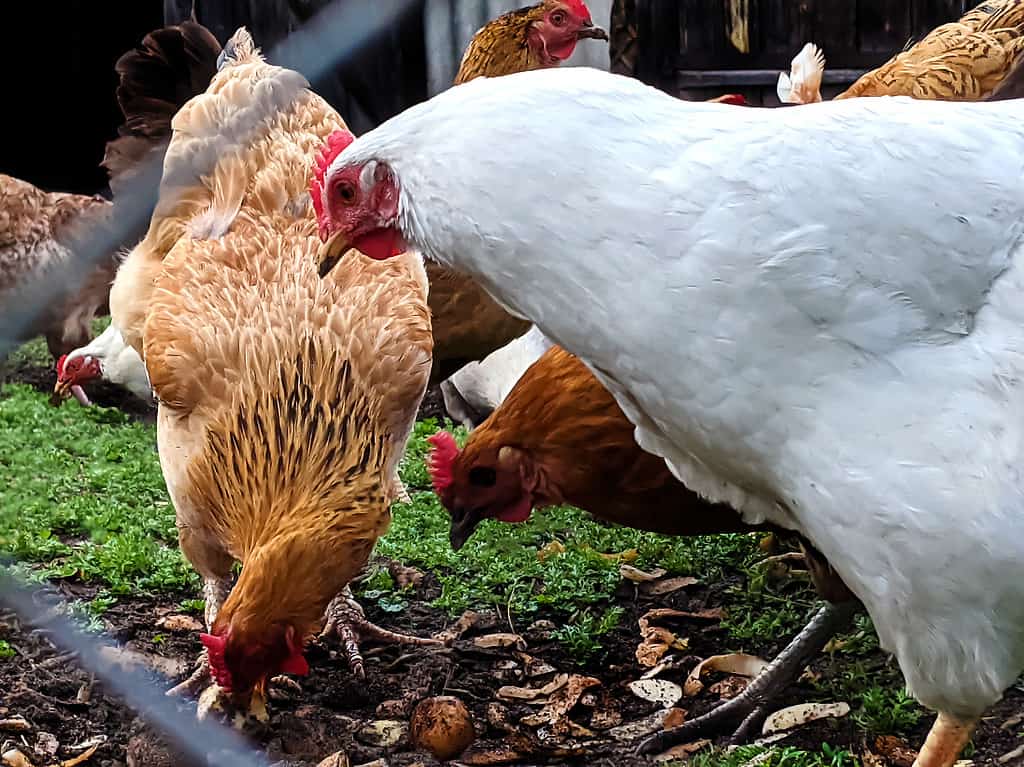
Free-range chickens are allowed to forage in their environment for food as well as getting chicken feed.
©Dmitriy Prokofev/iStock via Getty Images
If you want to start or add to a backyard chicken flock, a Golden Comet might be just the right hen for you. They are gentle and adjust well to a variety of environments and situations. When kept with other breeds, the Golden Comet will generally keep the peace and be low maintenance. Because they lay so many eggs, especially during their first 2 years, these hens are also good for smaller farms. You get a lot of bang (eggs) for your buck (upkeep costs) with this type of chicken. They also do well when allowed to free range and fit in well as a backyard chicken.
How Many Eggs Do Golden Comet Chickens Lay?
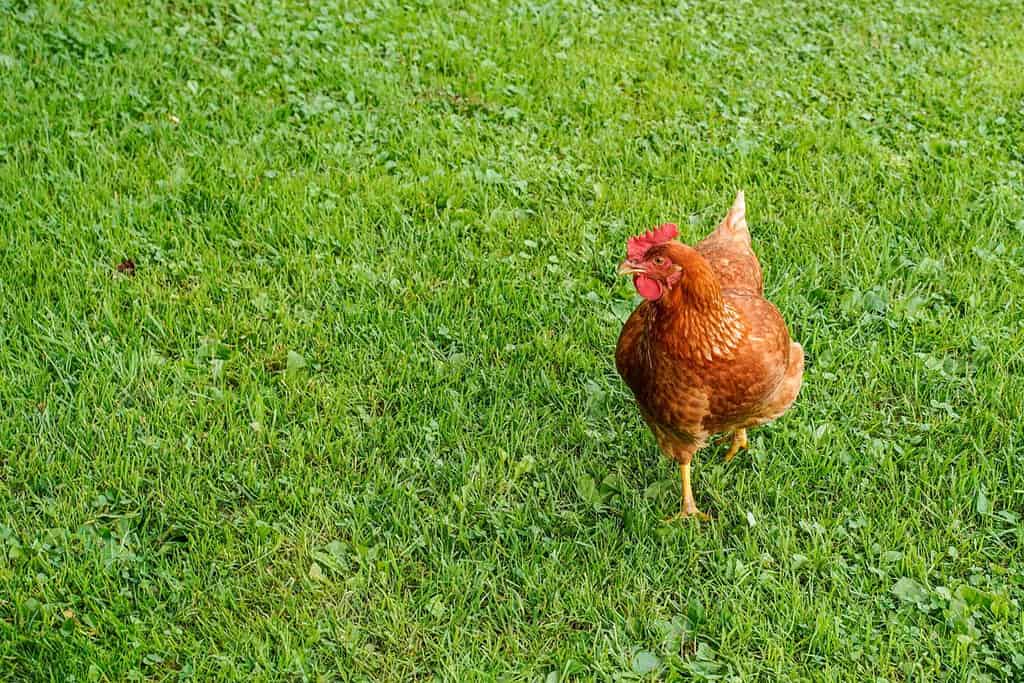
Golden Comets are known as great egg layers, although they lay fewer eggs as they age.
©Kathy D. Reasor/Shutterstock.com
These chickens can lay up to 320 eggs per year, although this number declines when they get older. Golden Comets also start laying eggs much younger than other breeds, even as early as 16 weeks old. Typically, most Golden Comet hens are productive egg layers by 20 to 24 weeks old. They were bred to lay plenty of eggs and start young. But this also means that they experience health issues as they get older. Golden Comets can have problems with their reproductive systems, often beginning around 3 years old.
While they are popular in commercial egg production, Golden Comets face problems as they get older. Unfortunately for these birds, many commercial chicken farms don’t want to keep them once their egg production starts to slow down. Because of this, Golden Comets are frequently rescued and sent to smaller-scale farms or backyard chicken flocks to live out their golden years. This means that smaller farms can get birds for little to no cost, although they won’t be as productive as egg layers. Their egg-laying slows down around 2 years old and their typical lifespan is around 4 or 5 years.
How Much Are Golden Comet Chicks?
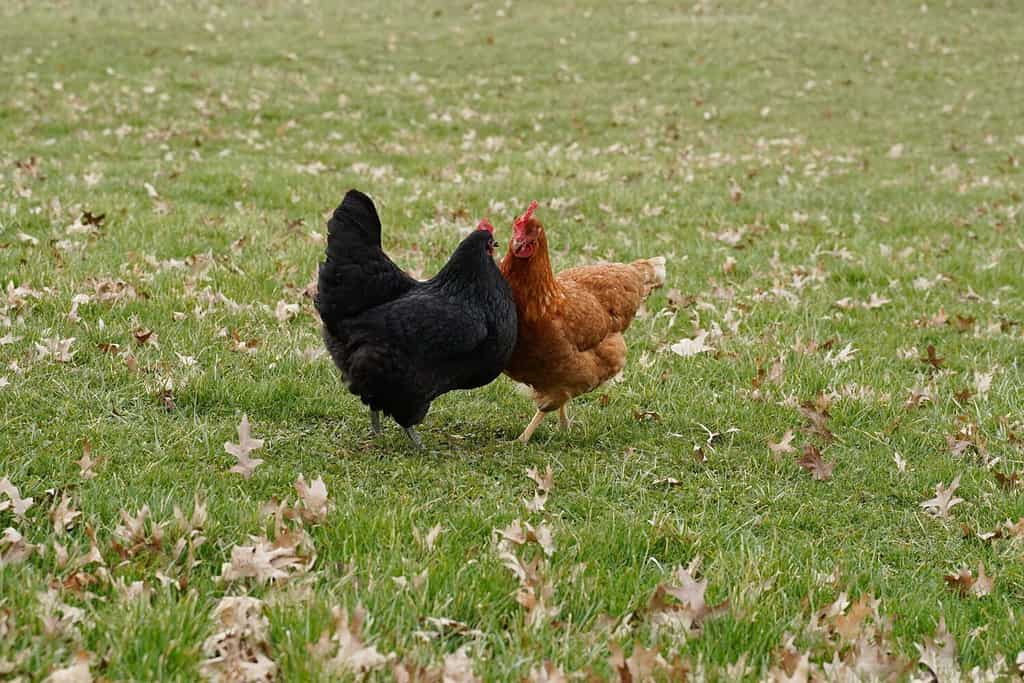
Golden Comet chicks’ prices depend on their sex, with females costing the most per bird.
©Kathy D. Reasor/Shutterstock.com
If you want to raise a Golden Comet chick, you have a few options to purchase them. Chicks are sold in small batches or large groups. Most hatcheries do not sell individual chicks due to the birds’ need and instinct to live in a flock. Generally, the more chicks you buy, the lower the cost per bird.
You can get female chicks, male chicks, or unsexed chicks. Unsexed chicks are not yet identified as male or female so you are taking a bit of gamble. Unlike some breeds, Golden Comet chicks’ sex is easy to identify even right after they hatch. Males are pale yellow and females are buff (light tan) with stripes. If you opt to purchase unsexed chicks, the hatchery will send a mix of males and females.
Male Golden Comet chicks cost around $3.50 each when purchased in small groups. If you opt for a larger group, usually 50 or more, the cost goes down to around $3.00. Female chicks cost around $5.00 per chick for small groups and around $4.50 per chick when purchased in bulk. Unsexed chicks are in between, costing around $4.15 per chick for small groups and around $3.75 per chick for larger groups. But you might end up with a whole group of roosters when you really need hens.
One way to add Golden Comet chickens to your home is to rescue older birds. Rescues tend to be 2 years old or older and past their prime egg-laying days. Keep in mind that Golden Comets only live to be around 4 or 5 years old. So depending on the age of your rescue, you might not have a lot of time with them. They are also susceptible to health issues as they age. But they make wonderful and gentle additions to any flock.
Setting Up a Chicken Coop
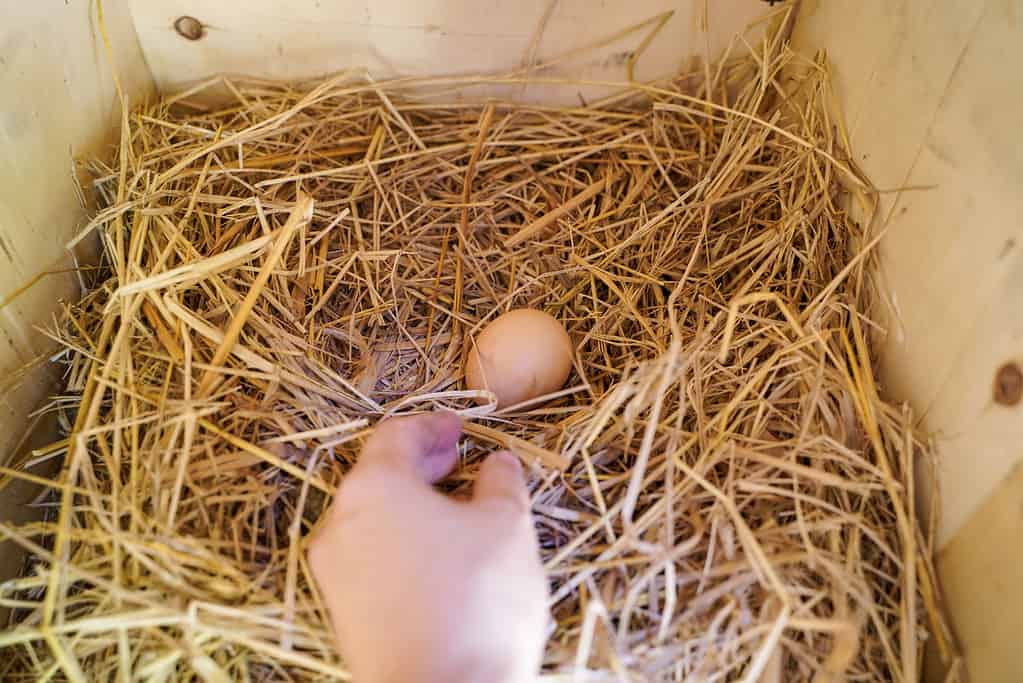
Make sure to include nesting boxes in your chicken coop to allow Golden Comets to have a safe, comfortable place to lay eggs.
©iStock.com/happydancing
If you are new to keeping chickens and beginning with chicks, one of the first things that you’ll need is a brooder. Before your baby chicks arrive, make sure to have a safe and warm space for them set up. This can be a simple DIY setup with a high-sided bin, heat lamp, and bedding. You’ll also need a chick-friendly feeder and water station. Baby chicks cannot keep themselves warm enough yet so having a good heat lamp is crucial for their well-being.
As they grow, you’ll need to upgrade to a chicken coop with plenty of space to move around. Golden Comets lay a lot of eggs so they’ll need a designated place to do this that can support them. They also do well when allowed to free range. Ideally, you can create a space for them to move around and peck at the ground for food while remaining out of reach of potential predators. At a minimum, make sure that your chickens have a safe coop to go to at night when it is time to sleep. This is when they are the most vulnerable to attacks from predators like foxes or coyotes.
The photo featured at the top of this post is © Mike Edwards/iStock via Getty Images
Thank you for reading! Have some feedback for us? Contact the AZ Animals editorial team.






